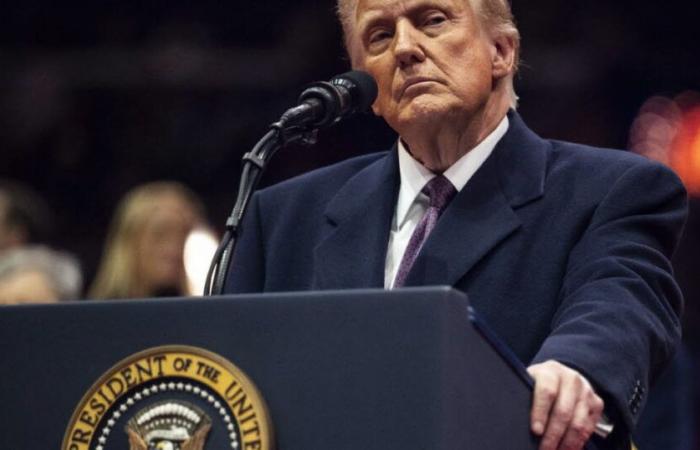
“America’s golden age”, a derivation of his famous slogan “Make America great again”: this is what Donald Trump promised during his inauguration on Monday as the 47th president of the United States . During the election campaign, this resulted in the promise to impose customs duties on products imported from European countries, as well as China, Canada and Mexico. “The European Union is very bad for us. They treat us very badly. They don’t take our cars or our agricultural products. In fact, they don’t take much, so they are good for customs duties,” declared the American president on Tuesday, after having carefully omitted to include these threats of trade conflict in his inauguration speech delivered on Tuesday. day before.
“We did not have the implementation of customs duties with immediate effect which had nevertheless been announced by Trump during the campaign. There is definitely a form of moderation and an awareness despite everything that we cannot do anything,” analyzes Jesus Castillo, economist at Natixis.
“It’s not a major shock in itself”
During his first term, the American president had already imposed customs duties on steel and aluminum in order to protect American industry, which he considered to be facing unfair competition. But Europe is today better able to respond to such a measure, according to Jesus Castillo. “The European Union has adopted several instruments to have a coordinated response, whether in terms of customs duties, access to the single European market, or access to public markets. There are different levels of response possible. »
The impact of the threat brandished by Donald Trump would be relatively limited for European and French producers. “According to a study by Cepii (Center for Prospective Studies and International Information), based on Trump’s declarations during the campaign, it would be -0.5% exports for France and -0.6% for Germany. In terms of GDP points, it would be roughly -0.1 GDP points on both sides. At the macroeconomic level, it is not a major shock in itself, it can largely be absorbed,” says Christophe Blot, economist specializing in foreign trade at the French Observatory of Economic Conditions.
-Aeronautics, pharmaceuticals and wines most affected
However, certain sectors of the French economy would be more affected than others, notably aeronautics, the pharmaceutical industry and wines and spirits, which together account for more than a third (35.3%) of French exports to the United States. . On the other hand, consumers would be the first to suffer from a trade war, in the event of retaliation from the European Union. “There may be behaviors where American exporters, if they are subject to customs duties imposed by the European Union, could try to lower their prices to compensate for that. European distributors could also cushion the shock by taking advantage of their margins. But, generally, it is the consumers who pay for it. There is the possibility of absorption perhaps in the short term, but probably a permanent increase in duties would result in an inflationary impact,” explains Christophe Blot.
Inflationary impact which would mainly be seen on hydrocarbons, France’s leading import hub from the United States (12.2 billion euros, 23.6% of the total). With the majority of French imports coming from neighboring European countries or Asia, increases in customs duties on both sides of the Atlantic would remain, according to experts, sustainable for the French and European economies. .
Belgium





